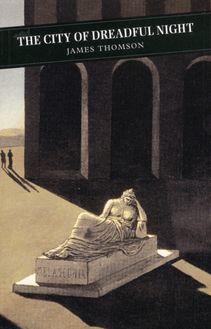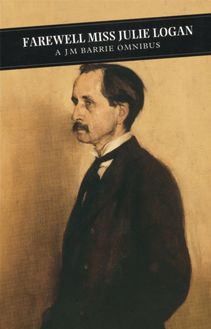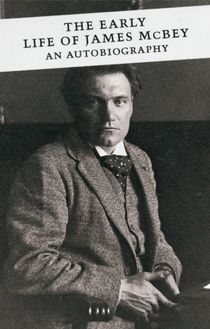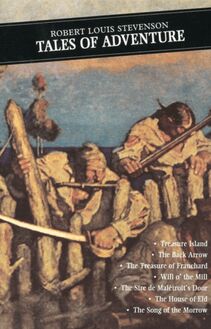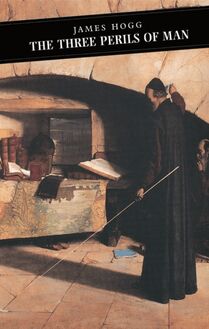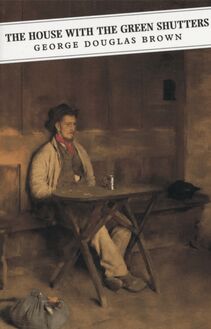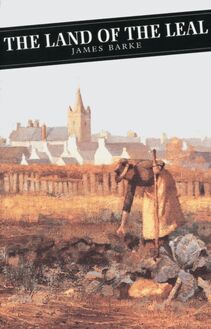End of an Old Song: A Romance , livre ebook
119
pages
English
Ebooks
2010
Vous pourrez modifier la taille du texte de cet ouvrage
Obtenez un accès à la bibliothèque pour le consulter en ligne En savoir plus
Découvre YouScribe en t'inscrivant gratuitement
Découvre YouScribe en t'inscrivant gratuitement
119
pages
English
Ebooks
2010
Vous pourrez modifier la taille du texte de cet ouvrage
Obtenez un accès à la bibliothèque pour le consulter en ligne En savoir plus
Publié par
Date de parution
01 juillet 2010
Nombre de lectures
3
EAN13
9781847675668
Langue
English
Publié par
Date de parution
01 juillet 2010
Nombre de lectures
3
EAN13
9781847675668
Langue
English
J. D. Scott
THE END OF AN OLD SONG
A Romance
Introduced by Christopher Harvie
Introduction
The 1950s in Scotland were odd and disquieting. The country was enjoying a prosperity which it hadn’t experienced for fifty years; the ‘national question’ and indeed the Scottish renaissance had been marginalized; in 1955 the Tories even won a majority of seats and votes. Underneath, as we now realise, things were less secure. The old business élite had shifted investment away from the traditional industries, education and training were stagnating, and political stability maintained itself by some pretty under hand methods: Tory manipulation of the home rule issue; Special Branch infiltration of nationalist organizations. Access to the British Empire had always underwritten Scottish acceptance of the Union. Now that its last post was being sounded, traditional loyalties came to seem archaic.
The quality of consciousness produced by this friction between the apparently stable and the potentially catastrophic was not immediately apparent, but powerful all the same, as James Kennaway would indicate in Tunes of Glory (1956). When the critic Walter Allen wrote of
something to which the respectable, censored mind does not normally have access, something powerfully charged with love and hate, pride and violence, which, in given circumstances it might discharge in some tremendous flash of lightning,
he might have had Colonel Jock Sinclair in mind. In fact he was describing The End of an Old Song , which appeared in 1954. Its author J. D. Scott had been, ironically enough, the Spectator literary editor responsible for christening Kingsley Amis, Philip Larkin and company ‘the Movement’, whose more modest values and pleasures were decidedly remote from those displayed in his own novel. Remembered by Graham Martin as a somewhat dour Anglo-Scot, he had written several novels about business and service life which would have fitted into the Movement’s definition of realism. The End of an Old Song A Romance is quite different, yet its subtitle shouldn’t blind us to the fact that it is a complex and, above all, ironic book.
Scott was by training an historian, reared in the same grim conviviality of Edinburgh’s Old College as young John Gourlay and a couple of decades later myself. He worked on the official history of the Second World War with Richard Hughes, and evidently acquired something of the latter’s fastidiousness about chronology and historical accuracy. Yet he chose to foreground the romantic element in The End of an Old Song , as we meet young Cathy in the old house of Kingisbyres, her lover Alastair Kerr, and his mysterious link to the house’s master, the Jacobite Captain Keith. On the other hand, the plot begins long after the wedding, the marriage is in trouble, and we are being told the story by an unsuccessful suitor the original ‘unreliable narrator’. Let the reader beware. In a debate with F. W. Bateson in the Times Literary Supplement Scott had argued that the novel was ‘capable of a higher degree of organization than the drama’. This is certainly true of his own use of the familiar elements of the romance and the Bildungsroman to launch an extended and cold-eyed but always imaginative and engaging meditation on Scottish history and Scottish identity.
The End of an Old Song is not an overtly allusive novel, although Scott had written appreciatively in Horizon of the Scottish father-son conflict in Stevenson and George Douglas Brown, and Alastair has more than a passing resemblance to that other bruising materialist, young Ewan Tavendale. More than most twentieth-century Scots novelists, Scott is concerned with class, and in particular with the predicament of the Scots bourgeoisie whom Patrick Shaw represents. Alastair Kerr, his hero and the term is, for once, apposite ought to be, as an economist, an arch-bourgeois . Instead, the peculiarities of Scottish history have made him a predator:
And all the time the look deepened on Alastair’s face, the look of a victorious commander giving permission to loot a city, a look of brutality, pleasure and recklessness, all masked and stilled by pride.
Kerr’s progress does not, however, take on the grand style that Patrick is led by this to expect. Although he takes his leave of Kingisbyres and Scotland with a spectacular gesture, his future seems Prufrockian rather than Yeatsian.
The book’s title alludes to the speech of the Scottish Lord Chancellor when the country’s independent parliament was prorogued in 1707. To Alastair Kerr the old song of an independent Scotland, represented by Captain Keith, has long been over:
‘We spit on Bonnie Prince Charlie and Flora Macdonald, on Rizzio’s blood and Mary Queen of Scots and the Flower o’ the Forest and Archibald Bell-the-Cat.’
‘The end of an auld sang?’
‘We spit great greeny-yellow gobs on the end of an auld sang.’
So much for neo-Jacobitism of the likes of Compton Mackenzie! But Alastair regards the traditional goal of integration into the English establishment as no more viable:
‘Sir Alastair Kerr, kc, and Lady Kerr with Jeremy, aged eight, and Curia, aged ten, on the lawn at Owlets Pastern.’ Sounds well, doesn’t it? But there was a picture like that … in the minds of the most diverse people, Levantine Jews, and Irish navvies and clever wee Scotties, for maybe a couple of hundred years. And now we have to give it up for an apartment on Fifth Avenue. It isn’t the same thing.
The problem with Alastair is that he might become what Edwin Muir called a ‘conditional figure’ an animated point of view. It’s a tribute to Scott’s skill that he makes his oblique and shifty narrator invest him with the solidity of Meaulnes in Alain-Fournier’s Le Grand Meaulnes . Scott is as precise as the Frenchman in capturing the insecurities of adolescence, the unreasoning obsession of first love, but to this he adds Patrick’s skill as a painter of the uncompromising landscape of lowland Scotland:
I walked up the High Street. As I had remembered it, it had been a slum, smelling figuratively of history and literally of extreme poverty, a horrible smell like stale sweet biscuits. Old men, derelict and grey-faced, with cloth caps polished black by hard old fingers, had mooned and spat round the entries of the wynds, too well aware of the value of attention to give it openly. … And on Sunday morning the congregations of the local churches had picked their way round frozen pools of beery sick. It seemed different now; it had the mild Welfare State look.
George Douglas Brown thought that the essential quality of the best Scottish literature was ‘the flashing together of different pictures of vivid sensuousness to produce a new compound image highly charged with meaning actual or metaphorical.’ In his juggling with realism and subjectivity, romanticism and worldliness, Scott achieves not only this grotesquerie but an uncanny anticipation of the swansong of the Union in the 1980s. If Alastair Kerr’s still around in the 1990s, he’s one of the unkilted realists who are wringing the poor bird’s neck.
Christopher Harvie
Contents
Title Page Introduction Part One Chapter One Part Two Chapter One Chapter Two Chapter Three Chapter Four Chapter Five Chapter Six Chapter Seven Part Three Chapter One Part Four Chapter One Part Five Chapter One Part Six Chapter One Chapter Two About the Author Copyright
Part One
There is the end of an auld sang Lord Chancellor Seafield, after the signing of the Treaty of Union in 1707
ONE
A S THE TAXI turned out of the station a flood of watery sunshine poured erratically through the high, racing storm clouds and caught the line of the buildings ahead. They were tall stone buildings, with hard, black edges. Behind, on my right, I caught a glimpse of the flash and glitter of moving traffic. Something, some eagerness, made me open the window, and the sudden icy wind brought tears to my eyes. I shut the window hurriedly. How well I remembered it, that ferocious east wind ….
Edinburgh looked, I thought, incredibly foreign, stranger to me at that moment than New York, as surprising as the ruins of Berlin. How hard the buildings looked! old, grimy, but unmellow; and when the sun went in again, everything was caught in a mysterious cold purple bloom. The taxi changed gear; we were climbing painfully towards the Castle. And it was at this moment that I saw the view, the immense purple evening view across the water to the dark hills, a view across a city, yet somehow desolate and un-European, cold and magical and almost absurdly romantic.
When I got out of the taxi I found I was shivering. I stopped by an effort of will, but the suppressed convulsive tremor made me fumble with the change.
‘Very cold,’ I said.
‘Aye.’ The taximan, who had the authentic undersized proletarian look, gave a remote grin. ‘You’d better be getting in to a nice fire.’ His way of speaking was curiously intimate, faintly contemptuous. But the mere mention of a fire made me look forward to the one that would be waiting for me, a hot, extravagant fire, blazing up the chimney. I was tired, had been over-working, had been restless on the journey, starting off through the London suburbs, then the Home Counties countryside of weekend parties, then the Midlands, and the North, and finally, after a long time, the rolling hills, the sea, the cold freshness of Scotland.
And now it was over, and a fire was waiting for me, and I was going to see Alastair Kerr, my oldest, my closest friend.
It was cold and dark on the landing, with a bitter, dank, hostile feeling. The door in front of me was of oak, massive as the fittings of a battleship. It had a small brass plate with the name Mathieson on it, presumably the name of the people from whom Alastair had borrowed the flat. When, after a few moments, the door opened, the moment was dram
